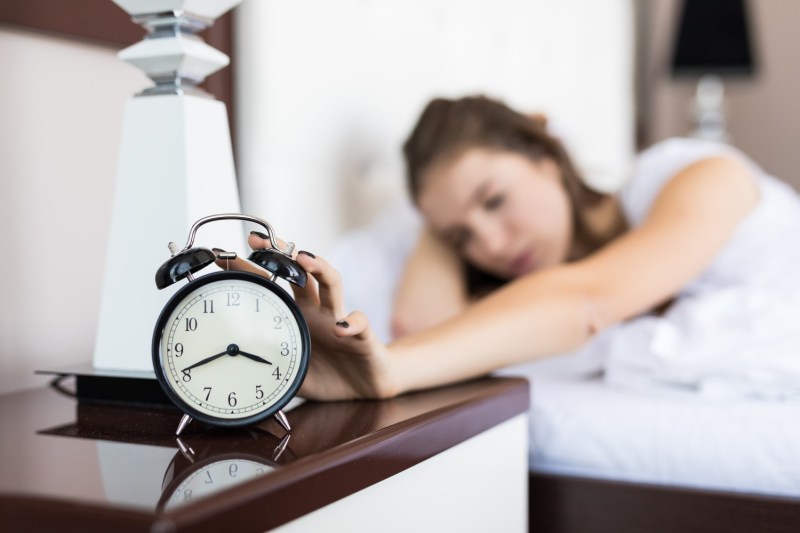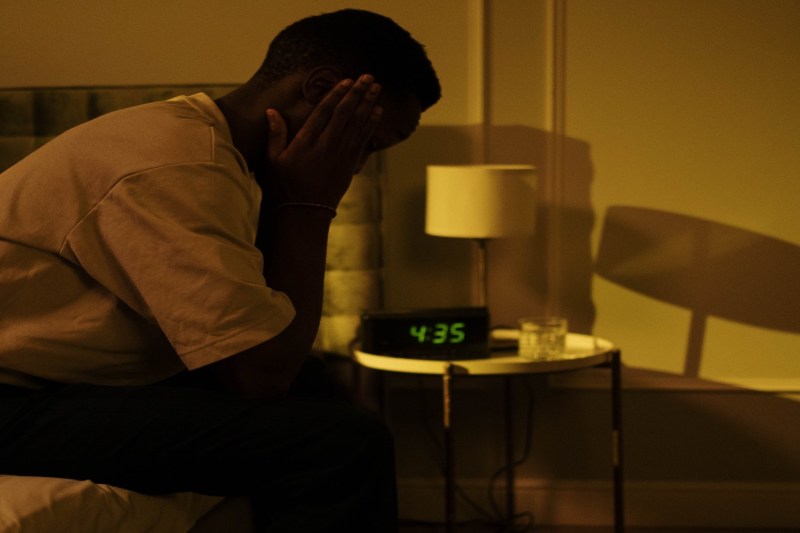Getting enough sleep at night can be the difference between feeling focused, energized, happy, and healthy the next day or groggy, irritable, emotionally unstable, hungry, and exhausted. Yet with over-scheduled busy lives that are too often defined by anxiety, stress, and chronic pain, many adults fail to get enough sleep every night. In fact, research conducted by the Centers for Disease Control and Prevention (CDC) found that one in three American adults is not getting the minimum recommended number of hours of sleep per night.
So how many hours of sleep do you need every night? How common is it for adults to not get enough sleep? What are the consequences of insufficient sleep? What can you do to get more sleep at night? Keep reading for our answers to the most common questions about getting enough sleep, and see if you can start getting the quantity and quality of restorative sleep your body needs to feel your best.
Prevalence of Insufficient and Poor-Quality Sleep

If you’re tossing and turning at night, or if you’re rushing around so much all day that you only give yourself a few hours each night to sleep, you’re not alone. As mentioned, one-third of adults are not meeting sleep recommendations, with an even higher prevalence of insufficient sleep among certain racial and ethnic groups. For example, only 54% of Native Hawaiians/Pacific Islanders, non-Hispanic Blacks, and multiracial non-Hispanics actually met healthy sleep requirements.
Having trouble falling and staying asleep can cut into the number of hours you’re sleeping per night. A National Sleep Foundation study found that 45% of American adults report difficulty falling asleep at least one night per week and 23% report difficulty on five or more nights per week. Furthermore, falling asleep isn’t the entire battle, as 53% of respondents note trouble staying asleep, and 35% of survey respondents rated their sleep quality as ‘poor” or ‘only fair.”
Consequences of Insufficient Sleep

Sleep deprivation can be acute or chronic, depending on whether you’ve missed out on enough rest for just a few nights, or if this has occurred for an extended period of time. While almost everyone has likely muddled through a day after a late night with hardly any sleep and is thus familiar with the fatigue, lack of focus, and low energy from acute insufficient sleep, the consequences of even a single night of not enough sleep can be surprisingly widespread and severe. Moreover, as insufficient sleep becomes a chronic issue, the magnitude and extent of the adverse effects become all the more severe.
Consequences of Not Getting Enough Sleep in the Short Term:
- Trouble concentrating
- Low energy
- Impaired memory
- Poor decision-making ability
- Impulsivity
- Mood disturbances and difficulty regulating emotions
- Increased appetite
- Increased response to stress
- Somatic pain
- Poor physical and mental performance
- Behavioral disruptions
- Weight gain
- Circadian rhythm disruptions
- Increased risk of accidents
- Blood sugar regulation disturbances
Consequences of Getting Insufficient Sleep in the Long Term:
- Hypertension
- Hyperlipidemia
- Cardiovascular disease
- Obesity
- Metabolic disorder
- Type 2 diabetes
- Mood disorders
- Dementia
- Premature cognitive decline
- Colorectal cancer
- All-cause mortality
How Much Sleep Do You Need Per Night?

The CDC, the American Academy of Sleep Medicine and Sleep Research, and the National Sleep Foundation base their recommendations on the number of hours of sleep you need per night on your age as the body’s sleep requirements vary across the lifespan. Furthermore, the recommended number of hours of sleep per night are based on the consensus of a panel of experts weighing all the available evidence regarding sleep duration and health categories including, general health, cardiovascular health, metabolic health, mental health, immunologic function, human performance, cancer, pain, and mortality. The American Academy of Sleep Medicine and Sleep Research state that the goal of their sleep duration recommendations is the “sleep duration, or sleep duration range, that promotes optimal health in adults aged 18 to 60 years.”
According to their evaluation of the evidence, adults should sleep at least seven hours per night on a regular basis for optimal health, with the ideal range being seven to nine hours. Young adults, people with illnesses, or those recovering from sleep debt may need more than nine hours per night. The Consensus Statement adds that regularly sleeping less than 7 hours per night is associated with impaired performance, immune dysfunction, increased pain, and a greater risk of accidents and errors, as well as adverse health outcomes, such as weight gain and obesity, hypertension, heart disease, and stroke, diabetes, depression, and increased risk of death.
The CDC extends the guidelines for the recommended number of hours of sleep per night to include newborns up to three months old (14 to 17 hours), infants aged four to twelve months (12 to 16 hours per 24 hours), toddlers up to two years old (11 to 14 hours per 24 hours), preschoolers aged three to five years (10 to 13 hours per 24 hours), children aged six to twelve (nine to twelve hours per 24 hours), and teenagers aged 13 to 18 years (eight to ten hours per 24 hours).
Tips to Get More Sleep Per Night

- The first step to ensure you’re getting an adequate amount of sleep per night is to give yourself enough time in bed. Though this may seem obvious, many of us simply aren’t getting to bed early enough. Because the recommendation for adults is to get seven to nine hours of sleep per night, you have to set aside at least seven hours of undisturbed, lights-off time in bed. That means that even reading or watching TV in bed needs to be concluded at night at least seven hours before you intend to wake up. Think about ways in which you can consolidate your evening or morning routine to extend your sleep window. For example, if you spend time every morning making your lunch to bring to work, consider meal prepping for the entire week on the weekend.
- Once you have carved out enough hours in your night for sleep, it’s important to also practice good sleep hygiene to optimize the quality of your sleep and support falling and staying asleep. Limit screen time before bed, or use a blue light filter, as blue light can disrupt sleep patterns. Avoid caffeine at least six hours before bed, and consider eating foods high in melatonin or tryptophan to help you fall and stay asleep. There are also herbal bedtime teas that relax your body and mind, lulling you into a peaceful state to naturally bring about sleep.
- Finally, improve the environment of your bedroom for sleep by keeping it dark, cool, and quiet. Sleep headphones can block out disrupting noises and can make for a more tranquil bedroom, and anxiety and restlessness may be remedied with a weighted blanket.
- If you find that you are uncomfortable in your bed, it could be that mattress quality is affecting your sleep and it could be time to begin researching the best mattress for a better night’s sleep. That said, if you are regularly sleeping poorly, it is advisable to consult your physician for further investigation and support.



